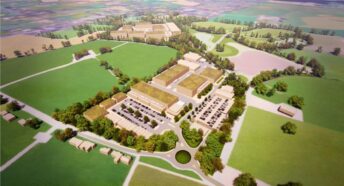CPRE warns of “urban sprawl” in rural West Berkshire
Local countryside campaigners have expressed “dismay” at the decision by West Berkshire Council to permit a development of 360 houses at Sandleford near Newbury, and have warned of “urban sprawl” ruining this rural area.
The Berkshire Branch of the Campaign to Protect Rural England (CPRE) wrote to WBC last year opposing the planning application by Donnington New Homes for 360 houses at New Warren Farm, south of Newbury. Following WBC’s decision to allow the scheme to go ahead, which the countryside charity described as “regrettable”, CPRE Berkshire Chairman Greg Wilkinson said: “We are very dismayed by the Council’s decision. The area earmarked for development is close to the environmentally sensitive landscape of Watership Down, made famous by local author Richard Adams, and Adams wrote about it in his book.
“In his novel Watership Down, Sandleford Warren was the very area that was threatened with destruction by developers in the opening chapter. That development provided the main storyline for the novel and for the two film adaptations in 1978 and 2018. In later years, when that threat became real, Adams also campaigned against housing development on this site, now known as ‘Sandleford Park West’. So it is extremely sad that this very site, which is so iconic, is now to be bulldozed and concreted over. A terrible example of fiction becoming reality.”
Greg Wilkinson adds: “This housing scheme, coupled with developments on the Hampshire side of the border, shows that this rural area, near to the North Wessex Downs National Landscape, is coming under growing threat from developers who care nothing for our natural environment, rural tranquillity, or wildlife. It means the whole area is in danger of becoming economically overheated while lacking essential public services and infrastructure. At a time when we need a more sustainable approach to development, it seems that we are going to get yet more car-dependent housing estates with families having to drive in order to access services.”








